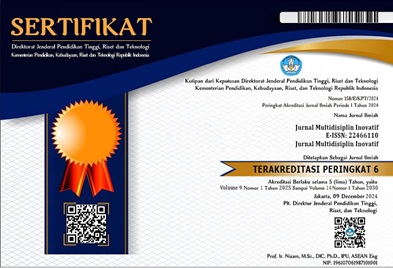SEBUAH STUDI LITERATUR MENGENAI UJI EFEKTIVITAS PELAKSANAAN KONSELING PERSON CENTERED THERAPY TERHADAP PECANDU NARKOBA
Kata Kunci:
Narkoba, Badan Narkotika Nasional, Person Centered Therapy, Konseling IndividualAbstrak
Penyalahgunaan narkoba di Indonesia telah menjadi masalah serius yang memerlukan perhatian khusus. Badan Narkotika Nasional (BNN) berperan penting dalam rehabilitasi pecandu narkoba, salah satunya melalui pendekatan Person Centered Therapy (PCT). Metode ini memberikan konseli kesempatan untuk membahas masalah secara terbuka tanpa penghakiman, sehingga mereka dapat mengenali diri dan masalah yang dihadapi. Dalam pembahasan ini menggunakan studi literatur untuk menganalisis efektivitas PCT dalam rehabilitasi pecandu narkoba. Hasil menunjukkan bahwa pendekatan ini efektif karena memperhatikan konteks pribadi dan kebutuhan unik setiap individu. Proses konseling melibatkan beberapa tahap dalam konseling individual: 1) Tahap Pengantaran (Introduction), 2) Penjajakan (Investigation), 3) Penafsiran (Interpretation), 4) Pembinaan (Intervention), 5) Penilaian (Inspection). Dalam artikel ini juga memberikan beberapa tahapan konseling Person Centered Therapy (PCT) untuk pecandu narkoba dengan konsep BMB3 (berpikir, merasa, bersikap, bertindak dan bertanggung jawab) dalam proses pembinaannya. Dengan dukungan yang tepat, konseli dapat mengembangkan perilaku positif dan meningkatkan kemandirian. Pembahasan ini menekankan pentingnya pendidikan, dukungan keluarga, dan program rehabilitasi terpadu untuk mengatasi kecanduan narkoba secara efektif.
Drug abuse in Indonesia has become a serious problem that requires special attention. The National Narcotics Agency (BNN) plays an important role in the rehabilitation of drug addicts, one of which is through the Person Centered Therapy (PCT) approach. This method gives counselees the opportunity to discuss problems openly without judgment, so that they can recognize themselves and the problems they face. This discussion uses a literature study to analyze the effectiveness of PCT in the rehabilitation of drug addicts. Results show that this approach is effective because it pays attention to the personal context and unique needs of each individual. The counseling process involves several stages in individual counseling: 1) Introduction, 2) Investigation, 3) Interpretation, 4) Intervention, 5) Assessment (Inspection). This article also provides several stages of Person Centered Therapy (PCT) counseling for drug addicts with the concept of BMB3 (thinking, feeling, behaving, acting and being responsible) in the coaching process. With the right support, the counselee can develop positive behaviors and increase independence. This discussion emphasizes the importance of education, family support, and integrated rehabilitation programs to effectively overcome drug addiction.





